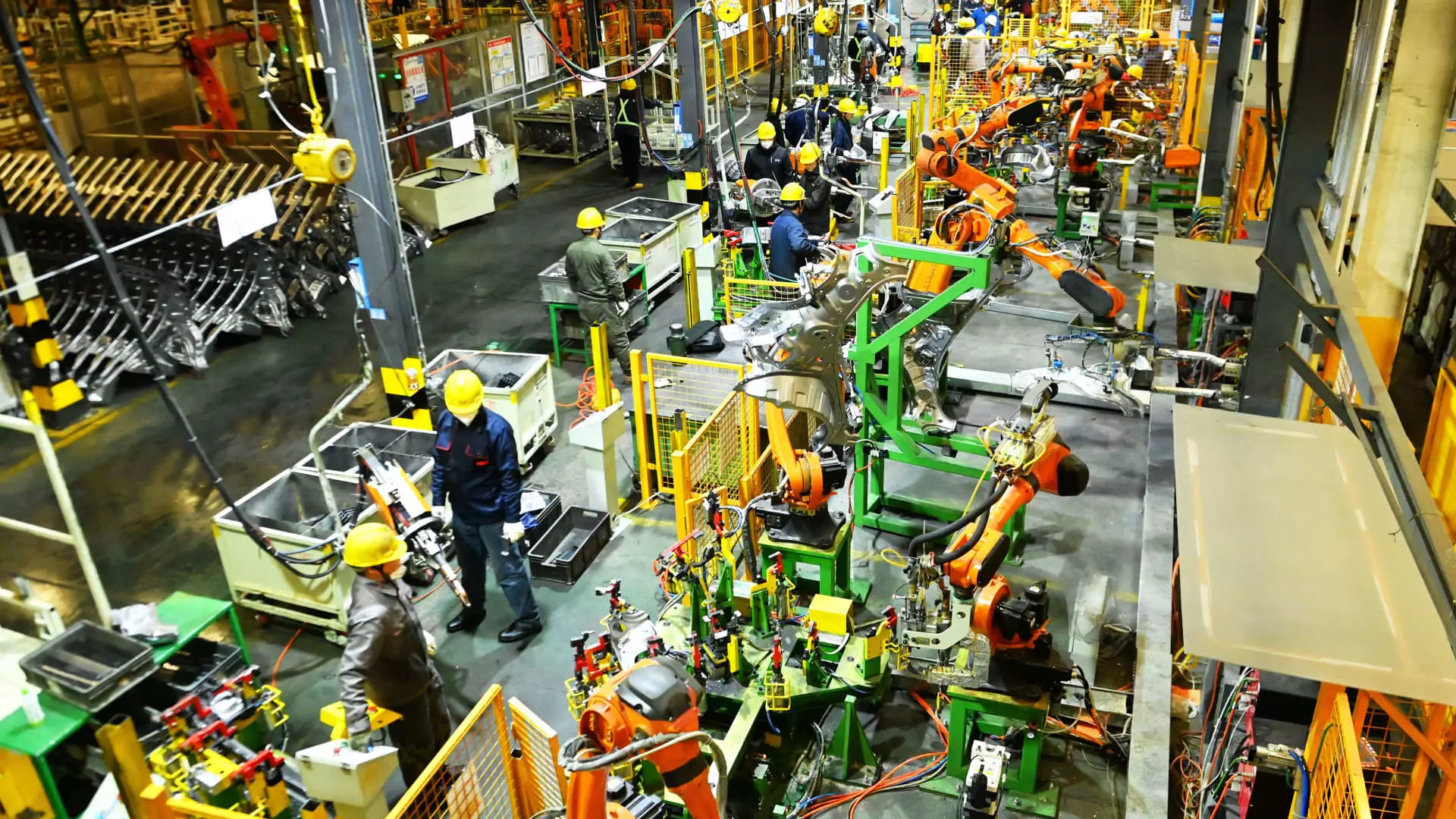In the realm of U.S. trade, tariffs often serve as a double-edged sword, swinging in unpredictable directions and wreaking havoc on markets that rely on international supply chains. President Donald Trump’s recent consideration of exemptions for automakers from some tariffs has sparked a multifaceted debate about the implications of government intervention in trade policies. These exemptions could offer a lifeline to an industry gasping for air under the weight of heavy tariffs on steel, aluminum, and imported auto parts. However, the question remains: do concessions denote an inconsistency in policy or a genuine attempt to bolster domestic production?
The auto industry is a critical backbone of the American economy, and the ebb and flow of tariffs can send shockwaves through the market. The proposed exemptions from the impending 25% tariffs on auto parts, which are set to roll out on May 3, may seem like a generous offering from the administration. Yet, the reality is that these tariffs are fundamentally a part of a more complex narrative surrounding trade relations with China, where the U.S. is attempting to combat issues as convoluted as fentanyl production. It poses the troubling question of whether U.S. economic strategy is built on sound principles or shaky ground.
Industry Voices: A Unified Call for Change
This week, an uncommon yet impactful coalition emerged. Six prominent policy groups from the automotive sector joined forces, coalescing into a rare unison to advocate against the forthcoming tariffs on auto parts. Their plea is not merely for relief; it is a call to arms against an impending crisis that threatens to cripple domestic production capabilities. The automotive sector finds itself in a precarious situation, with many suppliers already “in distress,” facing the prospect of insurmountable cost increases that could disrupt the fabric of U.S. automotive manufacturing.
General Motors’ CEO, Mary Barra, articulated the industry’s frustrations succinctly: clarity and consistency are crucial for making informed investments. The automotive industry thrives on long-term planning and stability, but the ever-shifting policy landscape compels executives to navigate through foggy waters. The evident anxiety over tariffs may stifle innovation and investments, leading to stagnation rather than growth—a cycle that no one, least of all the American worker, can afford.
The Irony of Protectionism
Trump’s belligerent stance on imports often masks a paradox: while aimed at protective measures for domestic labor, these tariffs may inadvertently place American jobs at greater risk. By imposing high tariffs on imported cars and parts, the administration engages in a false sense of security. When companies are coerced into absorbing rising import costs, the resultant effect can be layoffs, reduced hiring, or even relocation overseas to mitigate expenses. In a bid to protect American jobs, the administration risks obliterating them instead.
Furthermore, the irony of President Trump emphasizing, “We want to make our own cars,” resounds loudly in light of the complexities of auto manufacturing. The modern automotive supply chain is integrated globally; it’s not merely about assembling final products domestically. From acquiring basic materials to high-tech components, any disruption in the foreign supply apparatus can ripple back to cost consumers and depress manufacturers. The notion of an entirely self-sufficient domestic auto industry may remain a far-off dream rather than an attainable reality.
The Road Ahead: Navigating Policy and Innovation
Above all, the upcoming tariffs serve as both a challenge and an opportunity for innovation within the industry. It demands that automakers rethink their strategies, emphasizing adaptability in an unpredictable market. The call for policy transparency from leaders like Barra is crucial; without it, the sector cannot thrive. Innovation cannot flourish in a breeding ground of fear and uncertainty. Rather, it must take root in an environment where businesses can operate with foreknowledge of the rules of engagement.
Striking the right balance in trade policy will require a nuanced understanding of both domestic priorities and international obligations. The automotive industry isn’t merely about cars; it’s about people—their jobs, livelihoods, and the future of sustainable transportation. The administration must grapple with the consequences of its tariffs on this vital sector. Being myopic in economic policies could lead to a broader systemic failure that ultimately harms the very workers the administration purports to protect.

